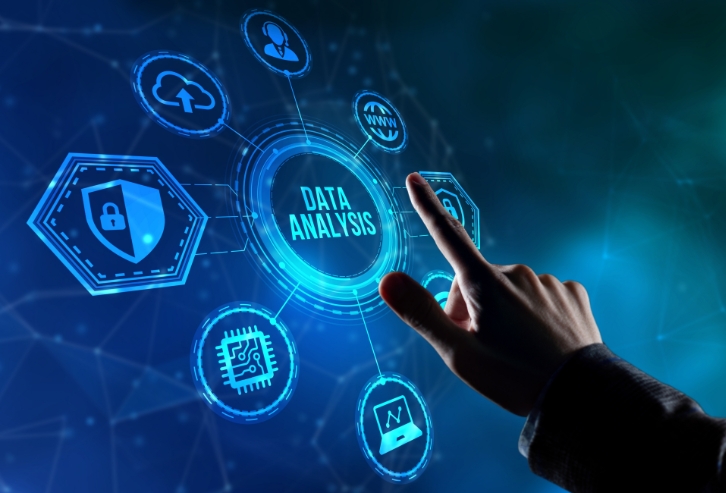Analytics is regarded as a driving force for business development and transformation. Business analytics and data analytics provide organizations with capabilities to develop and implement new strategies. You can use analytics to improve customer experiences, enhance growth, and find new revenue streams.
However, the analytics field is so broadly classified that it becomes difficult to pinpoint the activities that are being referred to in any given case. An example of this is the casual use of the terms business analytics and data analytics. These terms are often use interchangeably despite having different meanings.
Are you interested in knowing the similarities and differences between business analytics and data analytics? Do you want to explore the different roles and responsibilities of business analysts and data analysts? If so, you are at the right place.
What is Business Analytics?
Business analytics is the practice of using the company’s data to understand or predict trends and outcomes that are important to the business. Business analytics implements data mining, statistical analysis, and predictive modelling to help make more effective decisions.
Businesses often plan their sales strategies using business analytics, which helps, for example, to predict product demand. With improve forecasting, business owners can optimize stock and ensure that they meet their specific business goals.
What is Data Analytics?
Data analytics refers to collecting and examining data, making it accessible to the owners of the data, and drawing statistical conclusions. All businesses collect massive volumes of data which includes; sales figures, market research, logistics, and transactional data.
Data analytics is the process of recognizing patterns in a dataset that helps indicate trends, risks, and opportunities. Furthermore, data analytics allows businesses to modify their decisions base on gathered data and make better decisions from the results.
Differences and Similarities in Analytics Activities
You may well be confused about how business and data analytics differ given their respective definitions. Both activities use statistical tools to generate useful information from data. And there is significant overlap. But differences do exist.
A key difference is the stage of the process of using data to inform business decisions. Data analytics tends to be closer to the data itself and less concerned with business objectives. Data analysts work with data to make it useable and to understand what information the data yields.
With business analytics, the work is more closely attuned to the goals of business leaders and managers. Business analysts are concerned with answering specific business questions and try to exploit data for that purpose.
According to Jason Taylor, “Data analytics is broad and technical whereas business analytics is more narrowly focus on informing business decisions.” Essentially, you need data analytics to convert data into something potentially useful. Business analytics captures the opportunities by integrating the information with decision-making.
Business Analyst vs Data Analyst: Skills Required
The skills required of business analysts and data analysts are quite similar, spanning both technical and business fields. For example, a Graduate Certificate in Business Analytics course “welcomes those with a background in either IT or business.” Nonetheless, we’ll discuss the two roles in terms of business analysts being more on the business side of analytics and data analysts being more data orientated.
Business analysts usually have an undergraduate degree in business studies such as business administration, economics, or finance. The skills needed for a business analyst are:
- Expertise in data research
- Capability to analyze and investigate available data
- Mathematical mindset
- SAP skills
- Efficient in using Microsoft Excel, Word, and PowerPoint
- Project Management Experience
- Strong Communication Skills
Data analysts may be more oriented towards numbers. These professionals have completed their degrees in the STEM category and possess relevant experience in computer programming and predictive analytics. Some of the skills that a data analyst has are:
- Data mining
- Analytical skills
- Intellectual curiosity and reporting accuracy
- SQL/CQL, Python, and R
- Thorough knowledge of agile development methodologies
- Sound understanding of emerging technologies, data frameworks, and machine learning
Job Responsibilities of a Data Analyst and a Business Analyst
The end goal of business analytics and data analytics might be common, i.e., improving businesses by leveraging data; however, the skills required and strategies implemented for each are different.
A business analyst works on implementing changes and communicating results instead of processing data and drawing conclusions. Furthermore, a business analyst focuses more on the people and the practical changes a business needs.
In contrast, a data analyst has a stronger understanding of programming statistics and data processing. He has the potential to leverage the data available.
A business analyst is responsible for performing the following tasks:
- Defining business cases and analyzing business requirements
- Understanding business requirements
- Project management and development
- Taking decisions along with stakeholders
Whereas a data analyst might be responsible for:
- Scrubbing data
- Preparing and maintaining reports for different departments
- Preparing internal and client-facing reports
In addition, data analysts are often found working independently, whereas business analysts have to work directly with different departments and people within an organization.
Apart from these occasionally subtle differences in the responsibilities, both data analysts and business analysts must properly understand statistical techniques, data management strategies, and data visualization.



